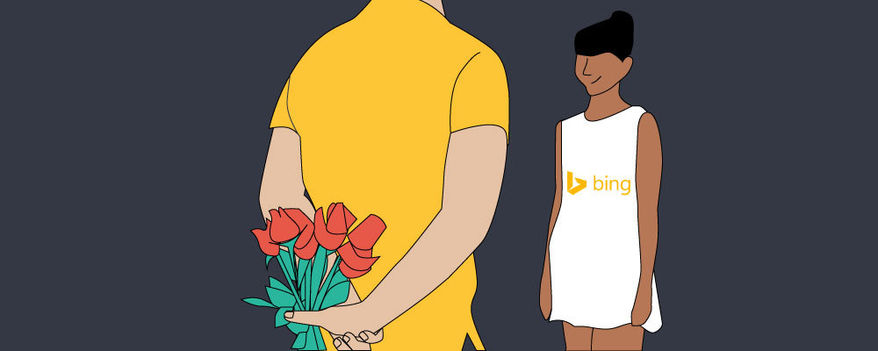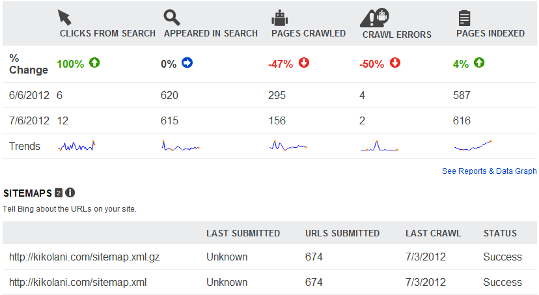
Imagine if a bachelor (from “The Bachelor,” of course) ignored 30% of the possible contestants. His chances of finding lasting love would be even more microscopic than if he gave equal attention to all his suitors. Fewer dates, less drama, less angst. What if one of the women he had paid no attention to was meant to be his soulmate? Left ignored, the would-be soulmate leaves the show and neither of them ever find lasting love…
Crying yet? So are we. That’s because, as digital marketers, this scenario speaks to us on an even deeper level. In this situation, businesses not marketing with Bing are the bachelor, the ignored contestants are Bing users, and the one that got away is, well, a visitor that didn’t convert.
Not a romantic? Well, you should be. It's easy to get swept up in what seems like the Google monopoly and ignore other search engines. Little do many people know, however, that only 2/3 of searches made in the US are completed on Google. It’s time to woo the other 30%; it’s time to focus on Bing (and Yahoo!) users. Here’s how we suggest you customize your SEO and PPC practices to ensure a Bing user is never the one that got away.
But first, what does a typical user look like for each search engine?
Statistics pulled from ABORG and Search Engine Journal.
Bing/Yahoo users:
-85% of users live in the United States
-Prefer Internet Explorer as a web browser
-Tend to be blue collar workers 35 years and older
-Are more likely to click on ads and online shop
-Are equally split male/female
-Have a household income of $100,000 or more
Google users:
-Make up a more international presence with only 50% of searches occurring within the US
-Use Facebook/social media more actively
-Tend to be white collar workers, college educated and of a younger demographic
-Use Google most often for research purposes
Keeping in mind the different user bases, here are our SEO and PPC tips for how to best optimize your presence on Bing.
SEO
From the Search Engine Optimization side of things, it all boils down to practicality and quality. First, use Bing Webmaster Tools. Sounds simple, right? Well, it is. If you’re familiar with Google Search Console then it is especially simple. Bing Webmaster Tools boasts some cool tools and complements Bing data found in Google (and oftentimes more accurately!).

Next, focus on the quality. While creating relevant, user-friendly content is always at the center of SEO, Bing seems to prefer certain best practices.
SEOBook notes that "Bing appears to favor linking from pages that share a similar topic area.” This means quality inbound linking should be a focus for Bing optimizations. Additionally, domain authority is super important for Bing. The older the domain the better.
This also means Bing tends to favor sites ending in .gov or .edu as they generally tend to be more authoritative. Basically, from an SEO standpoint, do whatever you’ve been doing with Google, but do it with Bing and do it just a little bit better.
PPC
The Pay Per Click strategy starts off similarly to the SEO side. Use Bing Ads! And no, you don’t have to start your campaigns from scratch. Simply import your campaigns from AdWords into Bing Ads and you’re ready to start some well-targeted campaigns.
It’s also been found that Bing tends to favor small businesses more than Google who tends to default to more established companies. This means it’s important to keep location targeting in mind while creating campaigns on Bing.
Finally, the coolest part about Bing is the wealth of opportunity it offers. As previously mentioned, while Bing makes up a significant chunk of the market share it is used less than Google. But that’s OK because less users = less competition = more space for ads = better ad position = better click-through rate = better conversion rate. This also means average cost per click is lower on Bing than it is on Google.
To answer your question: yes, Bing is ready for some love. It’s time to stop overlooking 30% of internet users and extend a rose to a search engine worthy of your attention.
--
Have you fallen for Bing too? Spread the love and ask any questions by tweeting us @Perfect_Search.
